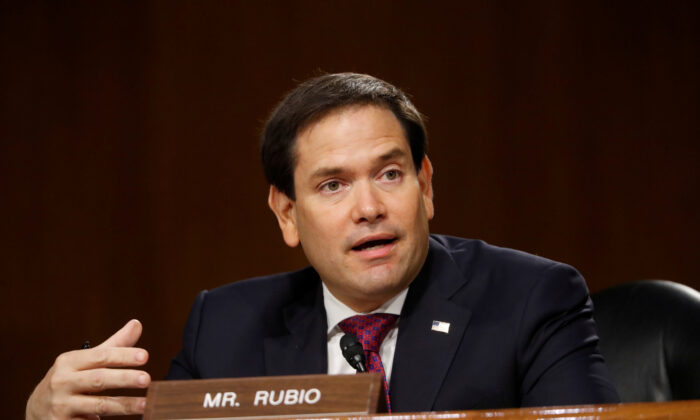Gordon Chang: On the Hong Kong Security Law, the India China Standoff, and Banning TikTok
The Chinese Communist Party (CCP) on July 13 sanctioned four American officials and a U.S. entity, days after the United States punished CCP officials linked to the persecution of Muslim minorities in China.
Chinese officials said they were sanctioning Sens. Ted Cruz (R-Texas) and Marco Rubio (R-Fla.), Rep. Chris Smith (R-N.J.), and Sam Brownback, the ambassador at large for international religious freedom.
The U.S. Congressional-Executive Commission on China was also included.
“The Communist Party of #China has banned me from entering the country. I guess they don’t like me?” Rubio wrote on Twitter.
Cruz said in a statement: “The Chinese Communist Party is terrified and lashing out. They forced over one million Uighurs into concentration camps and engaged in ethnic cleansing, including horrific forced abortions and sterilizations.”
“Unfortunately, I don’t have plans to travel to the authoritarian regime that covered up the coronavirus pandemic and endangered millions of lives worldwide,” he added.
Smith and Brownback didn’t respond to inquiries.
The White House National Security Council declined to comment.
Members of Congress targeted by the sanctions have vocally opposed the CCP’s treatment of Uyghurs, a Turkic Muslim ethnic group that’s persecuted by the communist regime. At least 1 million Uyghurs are detained in internment camps in China’s far-western region of Xinjiang.
 Workers walk by the perimeter fence of an internment camp in Xinjiang on Sept. 4, 2018. (Thomas Peter/Reuters)
Workers walk by the perimeter fence of an internment camp in Xinjiang on Sept. 4, 2018. (Thomas Peter/Reuters)Smith this month called for action after a report alleged Beijing was forcibly sterilizing Uyghurs. Rubio and Cruz have pushed legislation that would punish the actions of CCP officials in Xinjiang, home to roughly 11 million Uyghurs.
The United States last week announced sanctions against Chen Quanguo, the Party secretary of the Xinjiang region.
Also sanctioned were Zhu Hailun, a former deputy Party secretary of the region; Wang Mingshan, director of the Xinjiang Public Security Bureau; Huo Liujun, former Party secretary of the bureau; and the bureau itself.
Brownback praised the move, saying it served as “accountability a long time coming.”
The sanctions show the Trump administration “will protect religious freedom at all costs,” he said.
China’s foreign ministry spokeswoman Hua Chunying told reporters on July 13 that affairs in Xinjiang are “purely China’s internal affairs,” without elaborating on what the sanctions entail. “The United States has no right or grounds to interfere.”
Focus News: China Sanctions US Officials, Including Rubio and Cruz
US Warns Americans in China of ‘Heightened Risk’ of Arbitrary Detention, Exit Bans
